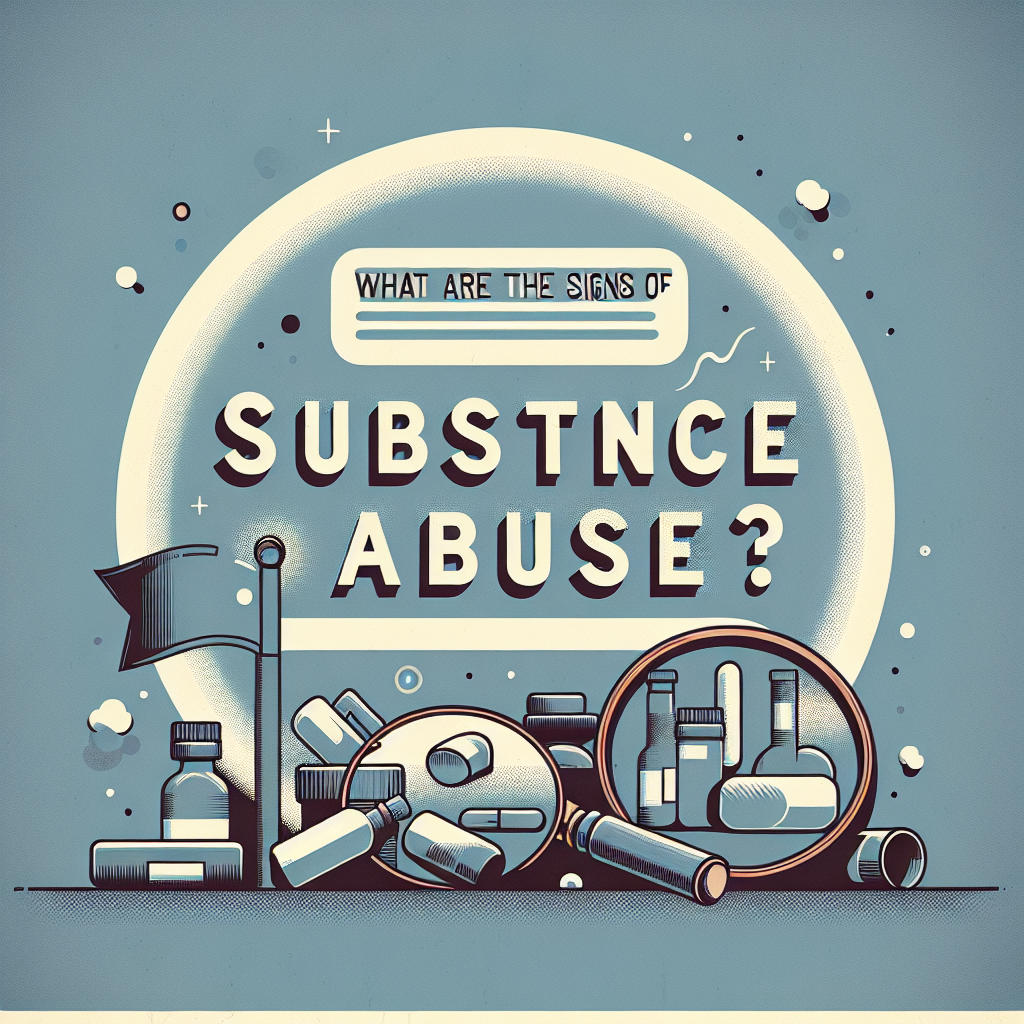Substance abuse is a serious problem that affects millions of people around the world. It can have devastating effects on an individual’s physical and mental health, as well as their relationships and overall quality of life. Recognizing the signs of substance abuse is crucial in order to intervene and seek help for those struggling with addiction. In this article, we will explore some of the common signs of substance abuse and provide information on how to get help.
Signs of Substance Abuse
There are many different signs and symptoms of substance abuse, and they can vary depending on the type of substance being used. Some common signs of substance abuse include:
1. Changes in behavior: Individuals who are abusing substances may exhibit changes in behavior such as mood swings, irritability, and aggression. They may also become withdrawn and isolated from friends and family.
2. Physical symptoms: Substance abuse can cause a variety of physical symptoms such as weight loss or gain, bloodshot eyes, tremors, and slurred speech. Individuals may also neglect their personal hygiene and appearance.
3. Changes in social circle: People who are struggling with substance abuse may start spending time with a new group of friends who share their habits. They may also become secretive about their activities and whereabouts.
4. Financial problems: Substance abuse can be expensive, and individuals may start experiencing financial problems as a result of their addiction. They may borrow money from friends and family, steal, or engage in other illegal activities to support their habit.
5. Neglecting responsibilities: People who are abusing substances may neglect their responsibilities at work, school, or home. They may miss deadlines, skip appointments, and lose interest in activities that they once enjoyed.
6. Increased tolerance: Over time, individuals who abuse substances may develop a tolerance to the effects of the drug, requiring larger amounts to achieve the same high. This can lead to a dangerous cycle of escalating use.
7. Withdrawal symptoms: When a person stops using a substance they are addicted to, they may experience withdrawal symptoms such as nausea, sweating, shaking, and anxiety. These symptoms can be uncomfortable and even life-threatening in some cases.
FAQs about Substance Abuse
Q: What are the most commonly abused substances?
A: Some of the most commonly abused substances include alcohol, opiates (such as heroin and prescription painkillers), stimulants (such as cocaine and methamphetamine), and marijuana. Prescription drugs, including benzodiazepines and stimulants, are also frequently abused.
Q: How can I help a loved one who is struggling with substance abuse?
A: If you suspect that a loved one is struggling with substance abuse, it is important to approach them with compassion and empathy. Encourage them to seek help from a professional, such as a therapist or addiction counselor. Offer your support and encouragement, but also set boundaries to protect yourself from being negatively impacted by their behavior.
Q: What are the risks of untreated substance abuse?
A: Untreated substance abuse can have serious consequences, including physical and mental health problems, legal issues, financial problems, and strained relationships. Substance abuse can also increase the risk of overdose and death.
Q: How can I find treatment for substance abuse?
A: There are many resources available for people seeking treatment for substance abuse, including inpatient and outpatient programs, support groups, therapy, and medication-assisted treatment. You can start by contacting your healthcare provider or a local addiction treatment center for more information.
Q: Is substance abuse a chronic condition?
A: Substance abuse is considered a chronic condition, meaning that it is a long-lasting and recurring problem that requires ongoing management. However, with the right treatment and support, individuals can learn to manage their addiction and lead fulfilling lives in recovery.
In conclusion, recognizing the signs of substance abuse is crucial in order to intervene and get help for those struggling with addiction. If you or someone you know is experiencing any of the symptoms mentioned above, it is important to seek help from a professional as soon as possible. Remember, recovery is possible with the right support and treatment.
